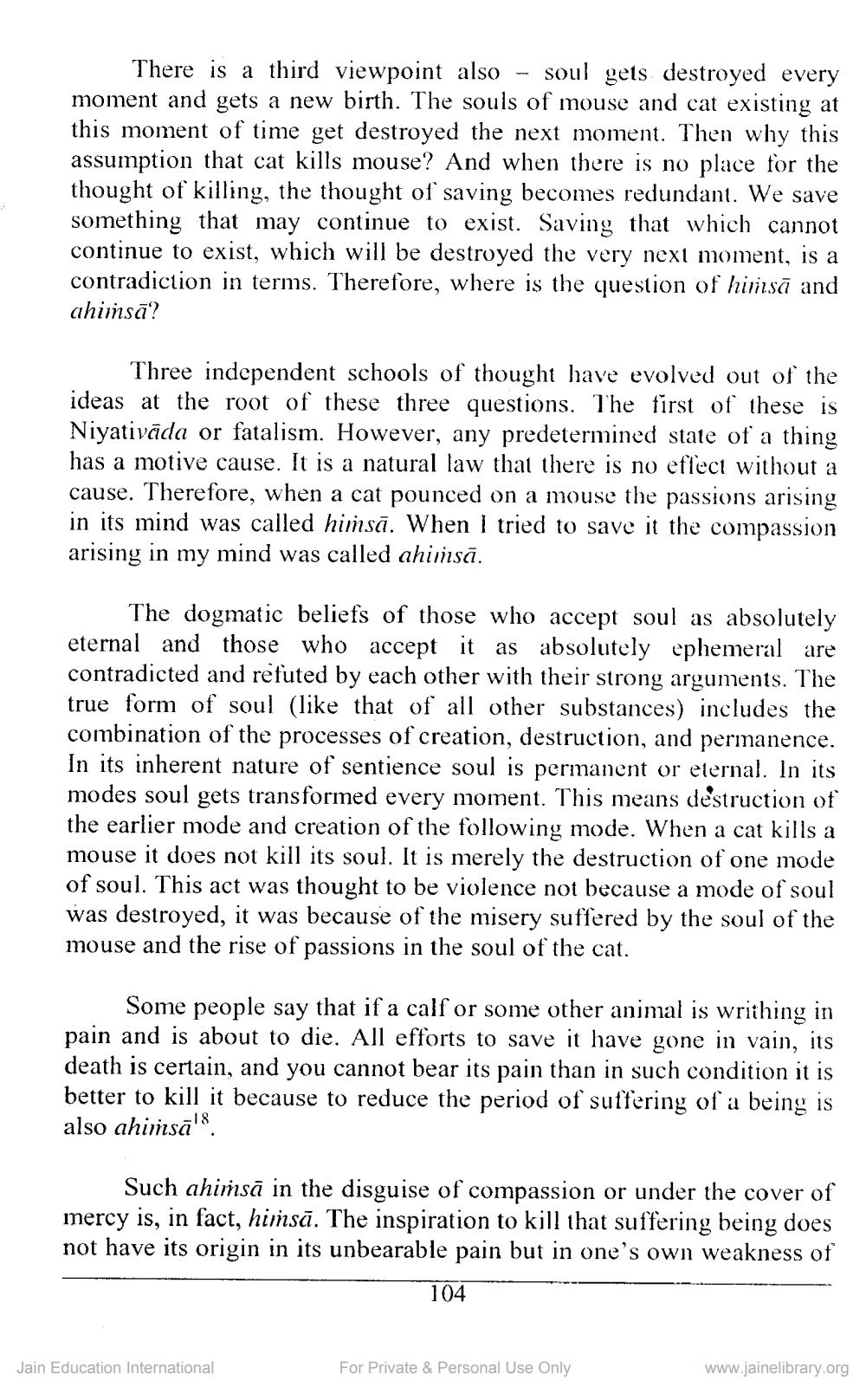________________
There is a third viewpoint also - soul gets destroyed every moment and gets a new birth. The souls of mouse and cat existing at this moment of time get destroyed the next moment. Then why this assumption that cat kills mouse? And when there is no place for the thought of killing, the thought of saving becomes redundant. We save something that may continue to exist. Saving that which cannot continue to exist, which will be destroyed the very next moment, is a contradiction in terms. Therefore, where is the question of hirsā and ahimsā?
Three independent schools of thought have evolved out of the ideas at the root of these three questions. The first of these is Niyativāda or fatalism. However, any predetermined state of a thing has a motive cause. It is a natural law that there is no effect without a cause. Therefore, when a cat pounced on a mouse the passions arising in its mind was called himsā. When I tried to save it the compassion arising in my mind was called ahimsā.
The dogmatic beliefs of those who accept soul as absolutely eternal and those who accept it as absolutely ephemeral are contradicted and refuted by each other with their strong arguments. The true form of soul (like that of all other substances) includes the combination of the processes of creation, destruction, and perianence. In its inherent nature of sentience soul is permanent or etern modes soul gets transformed every moment. This means destruction of the earlier mode and creation of the following mode. When a cat kills a mouse it does not kill its soul. It is merely the destruction of one mode
soul. This act was thought to be violence not because a mode of soul was destroyed, it was because of the misery suffered by the soul of the mouse and the rise of passions in the soul of the cat.
Some people say that if a calf or some other animal is writhing in pain and is about to die. All efforts to save it have gone in vain, its death is certain, and you cannot bear its pain than in such condition it is better to kill it because to reduce the period of suffering of a being is also ahimsāls
Such ahimsā in the disguise of compassion or under the cover of mercy is, in fact, himsā. The inspiration to kill that suffering being does not have its origin in its unbearable pain but in one's own weakness of
104
Jain Education International
For Private & Personal Use Only
www.jainelibrary.org




